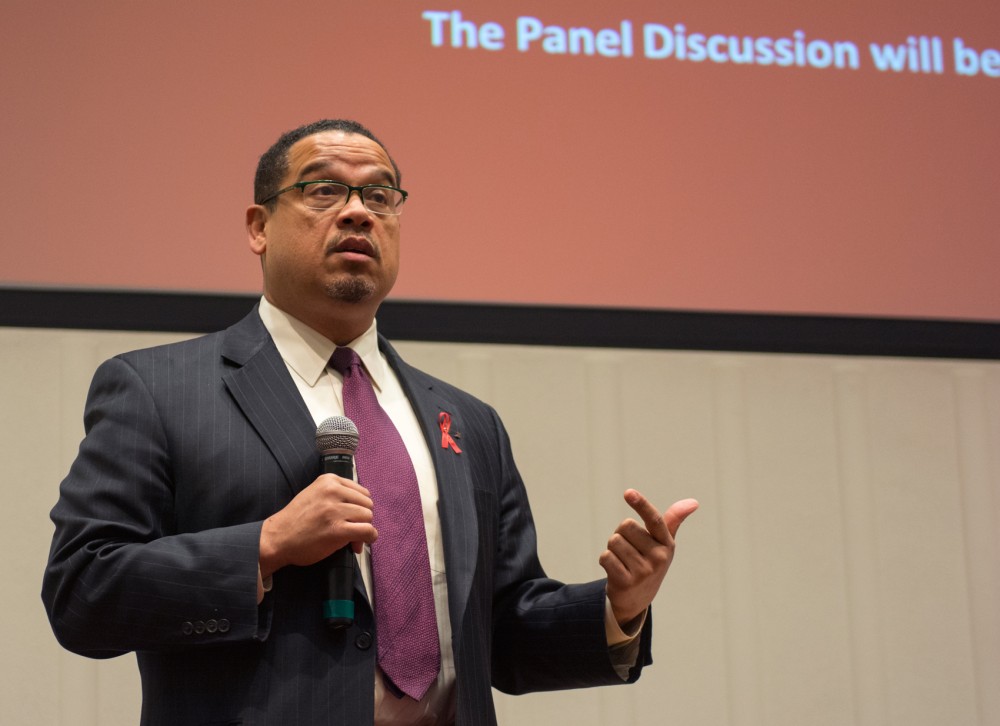In the fight for more gun control, some activists say cooperation with gun rights lobbyists could create the change they want.
Last week, four panelists shared their views on gun violence at the University of Minnesota’s School of Public Health, with a focus on the need to work with gun lobbyists to address research gaps and avoidable deaths through a public health lens.
Shruthi Murali, University public health graduate student and one of the event’s four student organizers, said the coordinators decided to lead a discussion on gun violence because it’s an issue many University students are interested in.
Minneapolis Health Department Youth Violence Prevention Coordinator Sasha Cotton spoke at the event and said she works to curb gun violence with a public health approach instead of a law enforcement one.
“In public health that stigma is not as big of an issue because generally people see public health as a user-friendly option,” Cotton said. “When we are able to use that platform as a way to talk about violence prevention, it definitely changes the dialogue.”
She said she and colleagues are working with Hennepin County Medical Center to start a hospital-based intervention pilot program this spring to meet with young people who have recently been shot or stabbed.
“Because they’re vulnerable, they might be more open to hearing a message about change … and we also know that’s a time when people might be thinking about retaliation as well,” Cotton said. “And our hope is that sending in advocates from the community who relate with these young people … [to talk with them] before they leave the hospital.”
The advocates will also discuss job, education and employment resources to prevent further violence, she said. The program received state and city funding and won’t collect gun-related data from the victims, Cotton said.
Gun research debate
The most recent data collected by the Minnesota Department of Health on firearm violence and deaths is from 2001. The CDC has a similar lapse.
At the event, Rep. Keith Ellison, D-Minn., said little research into gun violence is conducted in the U.S. because efforts are often attacked and diminished by the National Rifle Association and the U.S. Congress.
NRA Spokesperson Catherine Mortensen said the Centers for Disease Control and Prevention and other federally funded groups cannot perform research that advocates for gun control.
“Taxpayer money is not going to be used for funding any kinds of research promoting gun control,” she said. “Congress said that’s not legitimate research.”
Reverend Nancy Nord Bence, a panelist at the event and executive director of Protect Minnesota, an organization to prevent gun violence, said it is hard for local publicly funded organizations to research injury and death by firearm for fear of having their funding pulled.
“Our government agencies cannot collect data on gun violence and gun deaths in Minnesota,” she said. “So we can’t do that very first thing and that’s [to] look at the data and see what it shows.”
Mortensen said gun control advocates are sometimes misleading when they say the CDC is banned from researching gun issues.
“Gun control advocates point to [the law] as the reason as to why there is no research into gun violence, but that’s not true,” she said. “The truth is its only very narrow restrictions.”
Still, she said, some research that even the NRA wants doesn’t exist, like how criminals get guns and how often firearms are used in self-defense. She added that some studies show gun control doesn’t prevent violence.
During the discussion, panelist and University health economics professor Dr. Roger Feldman compared the NRA’s lobbying efforts to those of tobacco companies.
“But unlike cigarettes, guns can be used safely,” he said.


